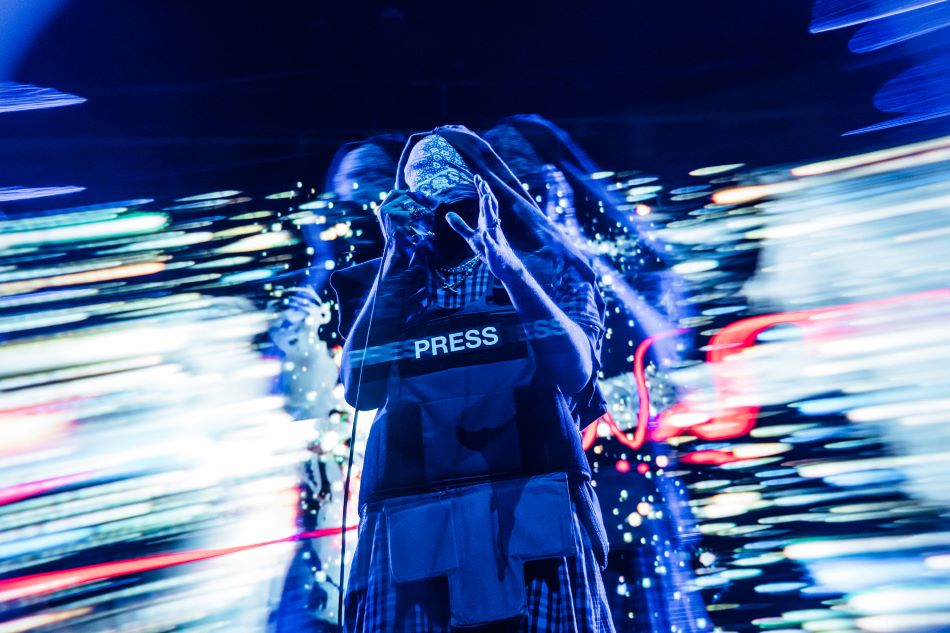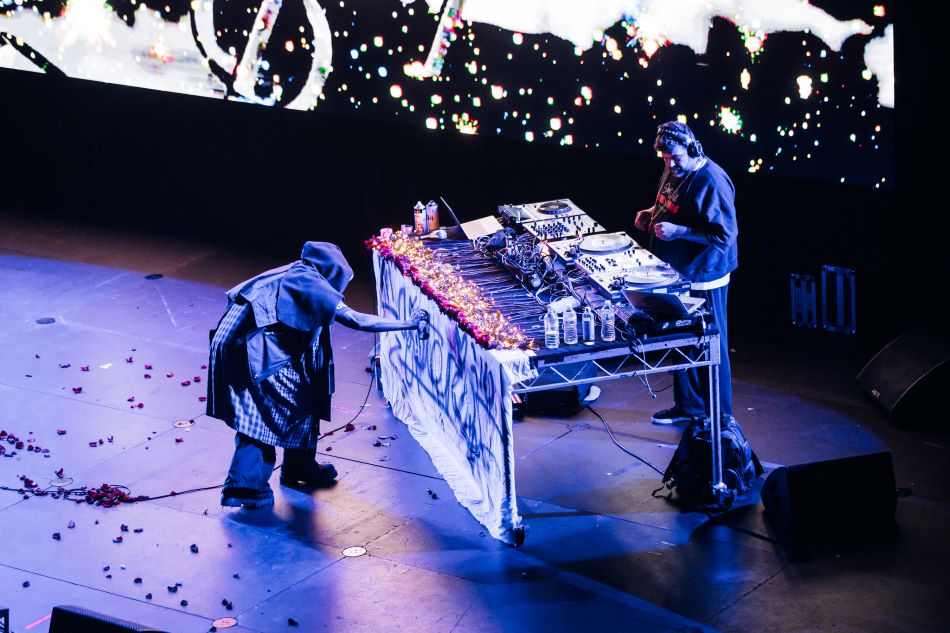
In 2004 MF DOOM released Madvillainy and MM..FOOD, often cited as the two best albums of his career, in 238 days. For the years following up until DOOM’s death in late 2020, these two albums and the entirety of his discography have garnered consistent critical acclaim, frequently appearing in year and decade-end lists. Universally accepted as DOOM’s magnum opus, and to many the greatest hip-hop album ever, Madvillainy is enough by itself to cement DOOM’s legacy as an all-time great. Listen to any of his work and you’ll immediately hear some of the most effortlessly genius lyrical displays. And since his life was unexpectedly and tragically cut short at only age 49, his popularity has only increased, with his total monthly streams increasing by almost 9x.
Perhaps, however, most important to DOOM’s legacy is that he was able to bridge the gap between underground hip-hop with the mainstream, without compromising the lyrical, dense, conceptual style of albums he is known for. However, for DOOM the popularity increase came more so later on in his career, with Madvillainy peaking at only #179 on the Billboard 200.
In many similar ways, Mos Def – now going by Yasiin Bey – achieved a similar cultural jump in the late nineties, gaining even more popularity early on, with his joint debut with Talib Kweli, Mos Def & Talib Kweli are Black Star (1998) peaking at #53 on the Billboard 200, and his solo debut Black on Both Sides (1999) peaking at #25. Since the turn of the decade, both a turbulent relationship with Rawkus Records and pursuits in acting limited the broadening of his musical audience into younger generations and the quality of his output. Bey’s final album release was The Ecstatic (2009) which peaked at #9 on the Billboard 200.
Over the years, Bey has frequently expressed admiration for DOOM’s artistry and skill. And so given Bey’s legacy, lyrical skills and love for DOOM, it is most fitting that he be the one to ensure DOOM’s legacy endures and allows new and young fans an opportunity to view these songs live and performed by an MC who has the skill to keep up with the endless intricacies of DOOM’s music.

Having been lucky enough to see the live show in Sydney’s Carriageworks, I can comfortably say that not only is Bey skilled enough to keep up with DOOM’s intricacies, but he’s able to send these songs into new directions, with new flows and intonations and cadences, and given his legacy, he’s one of the few people that should be allowed to.
The Sydney show, featured as part of Sydney’s annual Vivid festival, took place in the concrete box that is Carriageworks. The night opened with local DJ Munasib taking the stage to spin a range of tracks, ranging from A Tribe Called Quest to Punjabi hits and back to Kendrick Lamar, often remixed and swirled together into a slew of new experiences foreshadowing the music of DOOM to come, itself containing samples from the most eclectic of source materials.
For the entire duration, the lighting was dark and brooding with Bey at times hardly a silhouette on stage. On stage, he wore a black body-armour vest with the word “PRESS” across the chest, exactly the type seen on journalists currently in Gaza, and underneath what appeared a type of North African or Middle Eastern style thobe. This outfit combined with the restricted lighting effectively adapts the iconology and mystery of DOOM’s metal mask to match Bey’s outspoken political activism. In addition, he worked on a graffito throughout the show which, although I couldn’t make out the details, appeared symbolic of the types of graffiti often seen amongst the concrete rubble of decimated cities in times of war, again reminiscent of the current situation in Gaza.
Throughout, Bey moved across DOOM’s projects, mostly focusing on MM..FOOD and Madvillainy, featuring well-known classics of DOOM such as “ALL CAPS”, “Rhymes Like Dimes” and “Accordion”. Between songs chants of ‘Love’ from Bey as he continued his artwork, along with him chanting “Free Congo! Free Sudan! Free Gaza! Free WIFI!” were common. Bey’s renditions of songs such as “Fazers” (released by DOOM under his King Geedorah moniker) and “Papermills” brought a more introspective vibe.
Often it felt as if Bey was just going with the flow as he felt, rather than a strictly outlined setlist, telling his DJ to take wherever he felt and just rapping to whatever came on. It’s indicative of the fact that Bey is a DOOM fan through and through, and not just a man performing his work. And when “Rapp Snitch Knishes” came on, Bey just let it play out to be enjoyed, saying “I can’t even pretend to know the words!” Towards the tail end, Bey let a couple of lesser performed songs out including his own “Kijani” a song dedicated to his mother and her love and “Condition of Terms” an unreleased track of his own.
Overall, Yasiin Bey may not have brought the roof down with moshes and hype-rage-antics but instead expressed love for DOOM shared with him by hip-hop fans of previous, current and eventually future generations. Being a great himself, he managed to change and play with DOOM’s style in a way that felt honourable to DOOM’s legacy, and constructive artistically. It was a memorable night and a very fortunate opportunity for those in attendance to see one of the greatest to ever do it, pay tribute to a peer of his in the all-time hip-hop hall of greats.
FOUR STARS (OUT OF FIVE)
Photo credit: Jordan Munns
